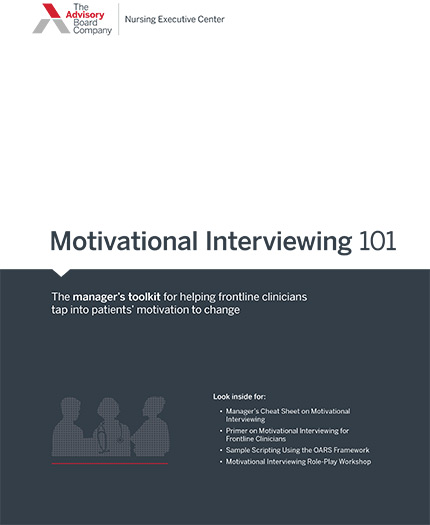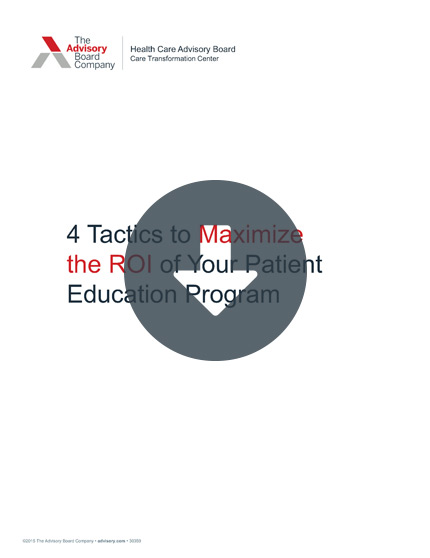Auto logout in seconds.
Continue LogoutA new case study published in BMJ "reiterates the dangers of cotton bud use" to clean your ears, telling the story of a 31-year-old patient who suffered years of on-and-off hearing loss and ultimately was hospitalized for a seizure—all because of a cotton swab that had been lodged in his inner ear years earlier.
Get these 4 tactics to maximize the ROI of your patient education program
An otherwise healthy man collapses
The case starts when the patient was rushed to a hospital in Coventry, England, after he had a seizure and collapsed.
But the signs something was wrong started years earlier. The patient, who was generally healthy, had experienced some pain and hearing loss in his left ear on-and-off for the past five years.
That pain worsened in the days before he was rushed to the hospital, and he also began experiencing nausea and vomiting. The man said he'd also been forgetful in the days before he collapsed.
The culprit? A cotton swab.
When doctors scanned the patient's head at the hospital, they found two abscesses between his brain and the membrane around it and "soft-tissue density material," in his left ear canal. After examining the man's left ear while he was under anesthesia, the doctors found an impacted cotton bud that they determined had been in the man's ear for years.
The doctors removed the cotton swab and diagnosed the man with necrotizing otitis externa, an infection that spreads from the soft tissues in the ear canal to surrounding bone. After taking antibiotics for 10 weeks, the infection cleared. Doctors in the report said the man is now doing well and has no remaining symptoms of the infection and, "[m]ost importantly, he is no longer using cotton buds to clean his ears!" the authors wrote.
Don't use cotton swabs in your ears, doctors warn
The authors wrote that the case "reiterates the dangers of cotton bud use," noting that thousands of kids go to the hospital each year due to using cotton swabs.
In 2017, the American Academy of Otolaryngology-Head and Neck Surgery Foundation (AAO-HNSF) issued new guidelines warning that using cotton swaps or other small instruments to clean ears can be harmful and advised that people to avoid using anything smaller than an elbow to clean their ears.
AAO-HNSF added that instruments like cotton swabs and toothpicks can cut the ear canal, poke a hole in the eardrum, or dislocate hearing bones, which can lead to dizziness, ringing in the ear, or hearing loss. Tools like cotton swabs can also just push earwax deeper into the ear and make matters worse.
Last year, a study published in JAMA Otolaryngology Head & Neck Surgery determined 66% of patients treated for traumatic eardrum perforations had caused the injury by sticking an "instrument" in their ear. "Ear canal instrumentation" accounted for 61% of those cases, with 45% involving cotton swabs.
So the next time you think about cleaning your ear with a cotton swab, you might want to think twice, according to Kris Jatana, pediatric ear, nose, and throat specialist at Nationwide Children's Hospital. "It is risky to use cotton-tip applicators in the ear canal … and certainly we are seeing way too many injuries as a result of this practice" (Pawlowski, "Today," NBC, 3/19; Fox8, 3/19).
Maximize the ROI of your patient education program
A scalable, robust patient education program is a cornerstone of a successful population health management strategy. Explore four tactics for building a best-in-class program.
Don't miss out on the latest Advisory Board insights
Create your free account to access 1 resource, including the latest research and webinars.
Want access without creating an account?
You have 1 free members-only resource remaining this month.
1 free members-only resources remaining
1 free members-only resources remaining
You've reached your limit of free insights
Become a member to access all of Advisory Board's resources, events, and experts
Never miss out on the latest innovative health care content tailored to you.
Benefits include:
You've reached your limit of free insights
Become a member to access all of Advisory Board's resources, events, and experts
Never miss out on the latest innovative health care content tailored to you.
Benefits include:
This content is available through your Curated Research partnership with Advisory Board. Click on ‘view this resource’ to read the full piece
Email ask@advisory.com to learn more
Click on ‘Become a Member’ to learn about the benefits of a Full-Access partnership with Advisory Board
Never miss out on the latest innovative health care content tailored to you.
Benefits Include:
This is for members only. Learn more.
Click on ‘Become a Member’ to learn about the benefits of a Full-Access partnership with Advisory Board
Never miss out on the latest innovative health care content tailored to you.


